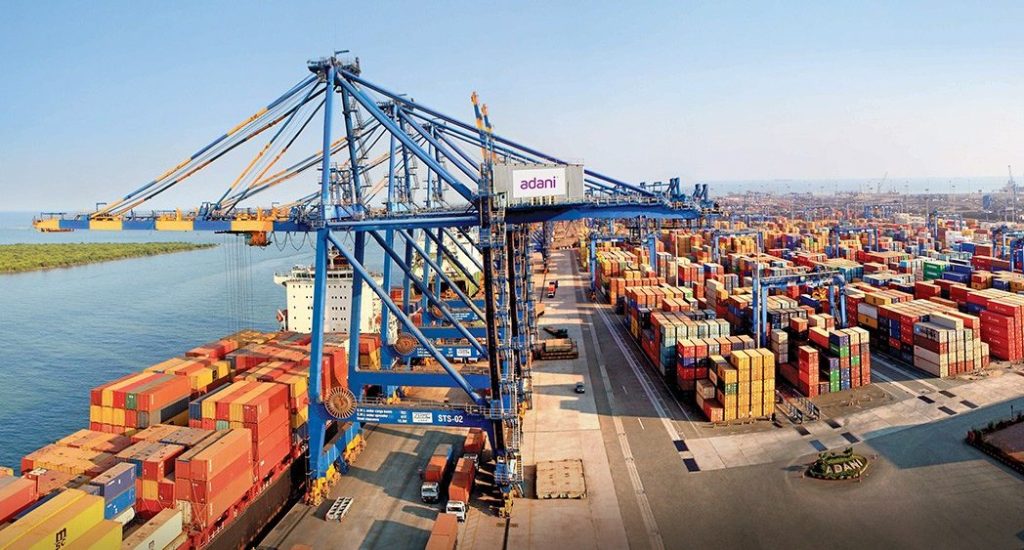The FBI has charged Indian business mogul Gautam Adani with bribing Indian government officials with over $250 million to secure government solar energy contracts that were designed to ensure India will become a cleaner energy nation.
The businessman and his seven other closest allies have also been charged with misleading the US regulators, investors and financial institutions to hide its pervasive trail of bribery and corruption practices to secure unmerited favours.
The Adani group has denied the charges, dismissing them as “totally baseless “, and has promised to clear its name.
The US charges may not lead to the arrest of Adani and his associates unless India honours the extradition requests.
This article looks at the moral and ethical impact of Tanzania and Kenyan governments to trust working with such a conglomerate with questionable conduct in wrapping up government contracts.
Kenyans poured their wrath on TikTok after the US criminal indictments surfaced. Many asked whether their government had received kickbacks to close deals ranging from JKIA to electricity transmission lines.
Some were quicker to label their government very venal, arguing that if, in India, roughly a quarter of a billion dollars had changed hands, what more evidence did they need to believe their government had not received similar bribes to smoothen dubious deals?
RELATED: Waters of Controversy: An Acquisition of TICTS by a Foreign Investor Leaves a lot to be Desired
Part of the Kenyan Gen-Z demos was a protest against their prime assets, such as JKIA, being handed over to foreigners, fearing jobs too could be on the fireline.
Also, the Gen-Z lamented that their country was being auctioned against their generational future.
In Tanzania, the Adani group has secured contracts to manage parts of Dar es Salaam port and was involved in winning the electricity transmission lines.
It is imperative to emphasize that, so far, nobody has accused the Adani group of any wrongdoing in these East African dealings.
Hours before the news of the criminal indictments charges levelled against top Adani group executives, president William Samuoi Ruto, while addressing the Kenyan bicameral parliament, announced his administration had cancelled all deals that would have allowed the Adani group to manage JKIA for thirty years despite workers there and the general public resisting such a move.
President Ruto said that the cancelled contracts will be re-advertised because an international investor is needed to manage the JKIA and inject funds into electrical transportation systems.
In Tanzania, the US indictments have been muted at best and, at worst, treated with contemptuous silence.
This earlier response, which should have alerted all of us, should not expect Tanzania to respond meaningfully until a legal dispute arose.
Speaking of legal disputes, we can learn a lot from the Adani group’s contractual agreement with Bangladesh, under which the former supplies the latter with about 10% of the electricity demand.
The dispute is brewing after the Adani group hiked utility rates and threatened to walk off or switch off the power until it is duly paid according to the new rates, which were allegedly aimed at cushioning the group against runaway inflation and rising costs!
The legal dispute between the Adani group and the Bangladesh government may claw its way to the international tribunal for arbitration but informs Tanzania with vital lessons.
The first lesson from the Bangladesh impasse is that the Adani Group will hike utility prices to accommodate runaway inflation and other costs as if those parameters were unknown when they signed the contract!
Second, the group will blackmail us if we refuse to satisfy their unreasonable demands.
Third, the initial terms of the contracts were designed to win the contract, and once all the rivals had been elbowed out, Adani Group revealed his true devious intent: to fleec us to the core.
The drawback of having contract conditions upended after both sides have inked the contract is that it makes the whole tendering and bidding procedure an exercise in futility.
Competitive bidding aims to ensure market prices are captured in the contractual relationship. Tampering with the initial agreement distorts the benefits secured from competitive bidding, opening avenues to bribery and extortion.
The new contract conditions imposed after the contract has been awarded disadvantage the recipient of the goods and services: the legitimate expectations solidified in the initial agreement are illegally revoked.
Once the new conditions of the contract have been accommodated in the agreement, the government will be forced to offload those costs to the consumers, adding additional burdens to consumers or government subsidies to offset them.
Either way, the recipient government is left off picking the rotten end of the stick.
All parties who applied to be considered to bid for the tenders felt cheated because the real bid from Adani was not the one presented during the bidding period but came after the rivals were disqualified, and there was no competition.
Such a scenario mocks the whole bidding process.
Tanzania has already awarded the Adani group partial container depot management at Dar es Salaam port for thirty years.
Some bidders complained during the bidding and award process, but those complaints were swept under the carpet for obscure reasons.
No official communication was made to the public, and we are unsure why those complaints were not resolved interactively.
The impression left to the bid losers was foul play was the real reason they had been victimized.
With Adani’s reputation being scrutinized, particularly their alleged penchant for bribing government officials wherever they go, we should be alarmed that we may be walking into unchartered waters.
Will the Adani Group demand a rate hike for its services soon, citing runaway inflation and operational costs, as it did in Bangladesh?
Will it have the leverage to blackmail us as it did there?
Will we be able to defend ourselves given the venal culture in the public service, or will we be doomed no sooner new demands crop up?
If the contract for the electrical transportation systems has yet to be finalized, we will do ourselves a favour by kowtowing to Kenyan exemplary leadership.
Just terminate the project and find other reputable firms to go ahead.
Bringing in foreign help makes sense if cost containment is achieved, but if costs spiral out of control, the objectives of bringing in external players lose their appeal.
Both port container management at Dar es Salaam port and the electricity transportation system make sense if cost is controlled. Prodding for a second look at the Adani group’s role in Tanzania is a worthy consideration.
The Tanzanian government may ignore strident calls to distance itself from the Adani group entirely based on the reputational risk imposed on us.
This is because when Bangladesh experiences boomerangs here, everybody will know: neither mediocrity nor naivety, but bribery has blinded our decision-makers, once again!
It will be another sad narrative to whiplash us, where dismissed caution was the best fumigation against dubious operators. In India, even university students demonstrated against the Adani group being awarded a solar energy production contract worth $6 billion to generate 8 Gigawatts of solar power in five years.
The project accosted resistance among energy buyers because of the unreliability of solar energy despite its low cost.
Then, the Adani group allegedly oiled the hands of energy buyers by providing over $230 million to complete the deal.
When the Adani Group reveals her true colours, you can easily imagine how much will change hands to ensure new extortionate rates are adopted in Tanzania.
Such reputation risk ought to be avoided at all costs.
The Kenyan secretary of Finance, John Mbadi, explained why the government will not face legal or punitive costs arising from the revocation of the Adani group contracts.
His careful reasoning ought to attract the attention of the Tanzanian decision-makers.
According to Mbadi, the Adani group’s New York Federal indictment was based on solicitation of money to fund its massive projects, including those in Kenya.
Therefore, if bribery allegations were true, all contracts signed by the Adani group with governments would be null and void because of the criminal proceedings of corruption involved in raising the money needed to execute those projects.
It makes a lot of sense. Unless Adani and his associates surrender to the FBI in New York and successfully defend themselves, they cannot lodge any complaint against revoked contracts associated with the pending case.
With this vital hindsight, Tanzania can now withdraw from all contracts signed or intended to be signed with the Adani group, citing New York criminal indictments that have rendered those contracts without legal consequences.
Failure to revoke contracts against Adani and start the whole tendering process afresh to get the right companies to execute or manage the two projects earmarked for the group will still attract litigation from the applicants who lost to Adani.
The losers of the bidding process will use the same reasons fuelling the cancellation of contracts with the Adani group: that the awards were fraught with allegations of bribery and corruption and should not have been honoured in the knowledge of the New York criminal indictments against the Adani group.
As the situation stands, the “doctrine of clean hands” demands that all contracts with the Adani group be rescinded immediately, or the Tanzanian government risks facing punitive arbitration proceedings from those who will feel short-changed by the Adani group’s underhand methods.
Either way, Tanzania cannot afford to bury her head under the quicksand because hibernation will be more punished than decisive action to uncoil the surrounding cobwebs.


